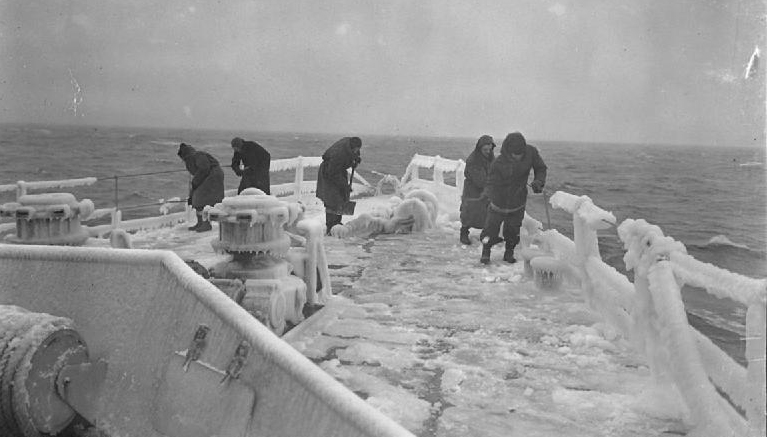
Like many other museums and veterans' associations, the Russian Arctic Convoy Museum had plans for a big event in May 2020 to mark the 75th anniversary of VE Day, the end of the Second World War in Europe.
Veterans, their families, dignitaries and history buffs would be gathering on the shores of Loch Ewe in northwest Scotland, from where the supply convoys to Britain's Russian allies departed, and where the museum now stands.
Then the Covid-19 pandemic struck, and the event had to be put back to 2021. Even more dismayingly, this was followed by a further postponement to 2022 when it became apparent that the restrictions on large gatherings were still not set to be lifted for some time to come.
However, there is good news from the museum. Firstly, there has been time this year to put together a special broadcast on 9 May to fill the gap where the celebratory event would have been. The 45-minute tribute will include a special message from Her Majesty the Queen read by HRH Prince Michael of Kent, as well as contributions from the Russian Consul General, Sir Winston Churchill’s granddaughter Celia Sandys and five convoy veterans, including one from New Zealand.
Another positive development is that the museum will soon be reopening its interior to the public after the completion of work to improve the fabric of the building, install new heating and make the site wheelchair accessible. Some pre-booking and social-distancing rules will still be in place, but visitors will be warmly welcomed back from mid-June to see the exhibitions about the Arctic Convoys – an often-overlooked contribution to the war effort.
The Russian Arctic Convoy Museum Project was conceived by four veterans on a visit to Loch Ewe in 1998, and after initially setting up in a disused primary school, it has been on its current site (a former bicycle factory) since 2017.
Telling the stories of both military and Merchant Navy personnel, the museum contains a wide array of artefacts and pictures on site, and features many more veterans on the 'Convoys remembered' section of its website. The museum is able to employ a full-time manager and seasonal assistant thanks to the support of various charitable funding bodies and Scottish government grant schemes. An enthusiastic band of volunteers also help to keep things up and running.
Some 20,000 visitors have been through the museum's doors since 2017, and the site is one of the advertised stops on the North Coast 500 tourist route, a five-seven day driving loop around northern Scotland inspired by the USA's Route 66.
It is pleasing that so many people are now learning about this most gruelling of campaigns – described by Churchill as 'the worst journey in the world' – in which some Merchant Navy trainees as young as 16 spent relentless days chipping ice off the decks every time a wave washed over and instantly froze.
The supplies brought to the Soviet Union forces via the northern ports of Murmansk and Archangel proved vital to winning the war on the Eastern Front, but when the Cold War set in and Russia was no longer an ally of Britain, the Commonwealth or the USA, the authorities in these countries were reluctant to admit they had ever helped the country that was now their enemy. The Arctic Convoy veterans were quietly subsumed into the group in receipt of the Atlantic Star campaign medal, and it took until 2012 for the Arctic Star to be established as a British award for war service.
The Arctic Star can be awarded posthumously, and there is information on how to apply for a family member on the Russian Arctic Convoy Museum website at www.racmp.co.uk – where there is also information on how to contribute stories and memorabilia to the museum.
The museum's web broadcast honouring the Arctic Convoy veterans will take place at 14.00hrs on Sunday 9 May. To watch, go to the museum's YouTube channel or Facebook page.
Tags
